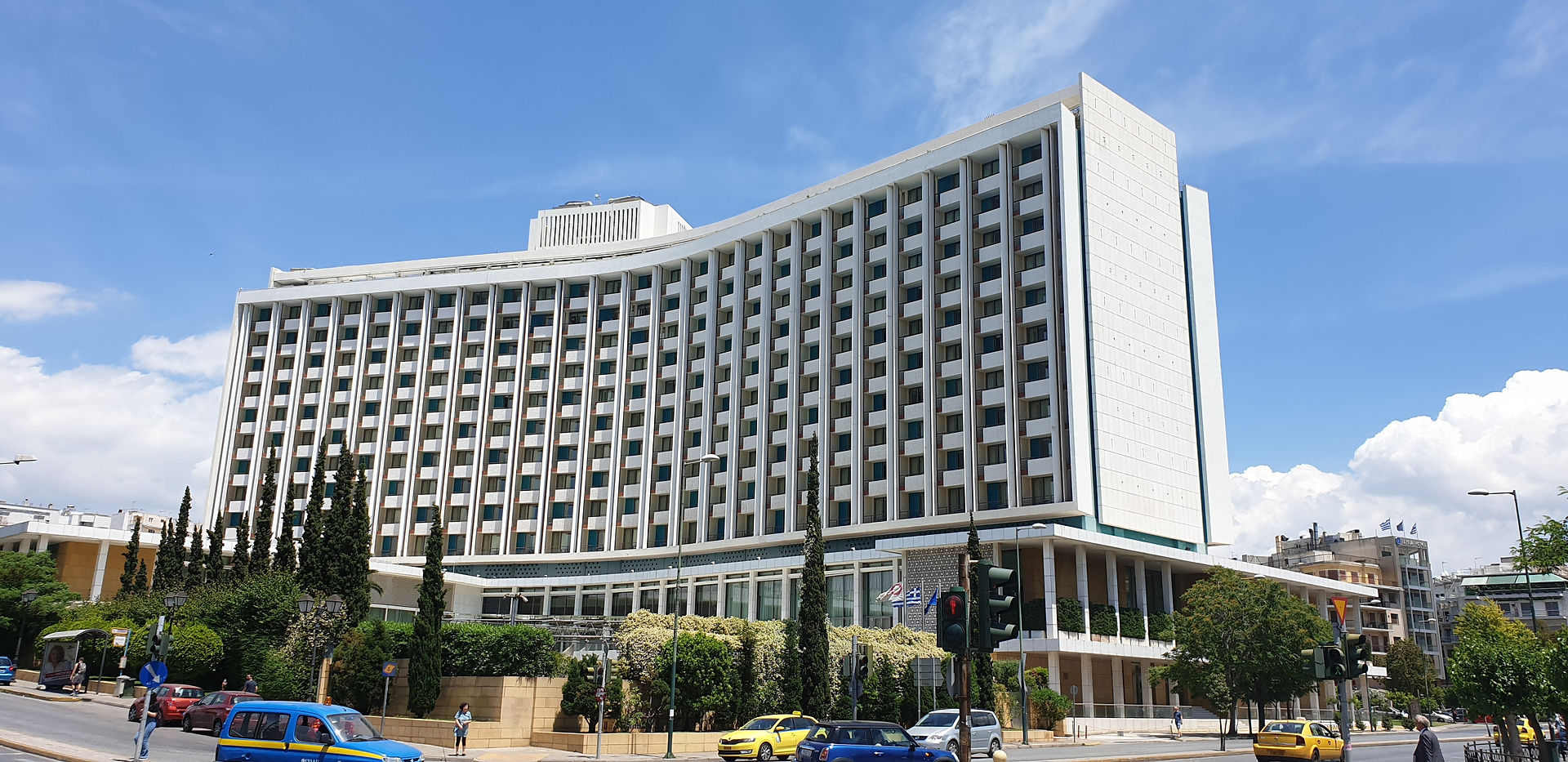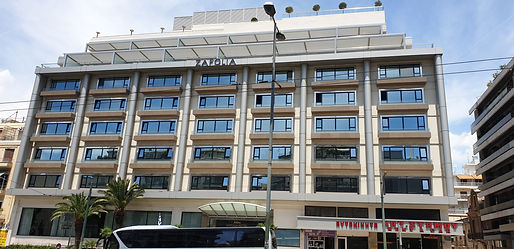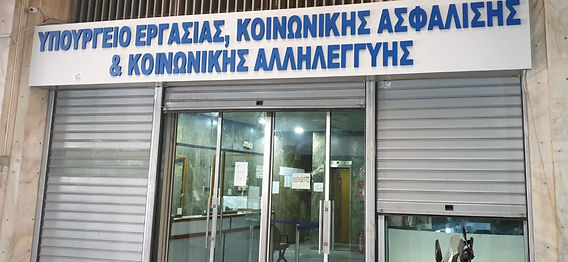
Hotel maids: the price they pay for your holidays in Greece
“I suffer from tendonitis in both my hands and shoulders, but I also have problems with my knees because of bending over often,” says Mirofora Stamopoulou, a hotel maid who works at Blue Lagoon. “All of my colleagues have problems too. Daily pains in our occupation are common due to the nature of the job,” the 36-year-old adds.
She isn’t the only one to express her anger with the exclusion of the maids from the list of “heavy and unhealthy” occupations (KBAE) in 2011. From her perspective, it remains a heavy occupation just because of the filth these women have to clean, the heavy objects they move and the chemicals they breathe everyday.
“We are the most important department in a hotel. Without us nothing can work properly. However, always, in everything, we are the last ones to be taken care of,” she tells MIJ.
Greece continues to enjoy a surge in tourists during summer season, but, even though the housekeeping department is considered to be crucial within a hotel, maids say they are the "fifth wheel of the car" and their complaints are usually ignored.
“Loaded like donkeys”
The job of chambermaids is a physically demanding one that includes a variety of tasks such as making beds, tidying up rooms, washing floors, removing stains and vacuuming, but also cleaning and polishing toilets, taps, sinks, bathtubs, etc.
“We are loaded like donkeys,” states Eirini Kiriakopoulou, a maid who works for a hotel complex in the island of Syros. Hotels in the islands are usually built on breathtaking rocks or in an amphitheatrical shape, making tasks even more laborious and distances longer.
“I work in the afternoon shift, which means less rooms, but I have to do them all alone,” a 45-year-old maid who works at Athens Zafolia Hotel, and wishes to remain anonymous, states.
“In the hotel I am currently working every employee was supposed to get 15 single rooms, but this is unfeasible due to lack of personnel as a result of the low salaries provided, so we end up taking on 20 rooms,” Stamopoulou continues.
“Until last year, in the hotel I work now, the working hours were 7 a.m. to 3 p.m. with a 30-minute break at 9 a.m., but this year they changed it and we have to work eight hours straight and take the break at the end of the shift,” says Kiriakopoulou. This is not a single case rule from a particular hotel as other maids like Stamopoulou endure the same.
The doctors’ perspective
MIJ interviewed occupational health doctor Ilias L. Tantis, who works closely with hotel maids in the city of Lamia. He points out that the legally necessary 20-minute break per eight hours of work is almost never given, let alone when the employee has signed an eight-hour contract and is sometimes employed for up to 14 hours.
“When you are working six hours you are entitled to a short break. However, when some of us asked for that, the supervisors showed us the exit,” states Kiriakopoulou.
Serious work-related health problems are not a rarity for Dr. Tantis. He has met staff suffering from carpal tunnel syndrome, bursitis, epizootic elitis, "elbow of tennis", tendonitis, tinnitus or herniated spine discs, among others. He says that the main causes are considered to be the handling of manual loads - “let’s not forget that women have less physical strength” -, repetitive movements and inadequate physical rest.
Dr. Tantis surveys his patients asking if anything from work has an impact on their health. “I use it to notify employers in order to improve the workplace conditions, but I also make sure to mention it in the patient medical history book,” he explains.

Image: Zafolia Hotel, Athens
They all grouse about similar problems: “Pains are very common, especially the musculoskeletal ones, tendonitis and back pain. Ι, myself have suffered from pain in my back for fifteen days in a row,” describes the maid working at Athens Zafolia Hotel.
“When I go back home I eat and lie down. Why? Because while every other position within a hotel has an assistant, that is not provided to us. We are the heart of a hotel and are often responsible for carrying and moving heavy objects; business of the hotel housemen,”
Kiriakopoulou says.
“From my personal experience in hotels, almost all maids suffer from musculoskeletal problems,” occupational health doctor and Vice President of the Hellenic Society of Occupational and Environmental Medicine, Vasilis Drakopoulos, reveals MIJ.
A study on safety and health among hotel cleaners explains that other non-orthopedic workplace hazards may result in ‘respiratory illnesses from cleaning products, skin reactions from detergents and infectious diseases from agents such as biological waste (e.g., feces and vomit) and bloodborne pathogens found on broken glass and uncapped needles’.
May, 2011: Hotel Maids out of the List
On the 3rd of May of 2011, the Greek Minister of Labor and Social Security Giorgos Koutroumanis announced the members of the standing committee that would be in charge of applying proposals for ‘heavy and unhealthy’ occupations.
An investigation by MIJ has found out that this decision was made without a clear agreement, in an arbitrary process, and in contradiction with scientific facts, according to statements by members of the committee.
Rolling times, especially night hours, exposure to carcinogenic and biological agents, work at heights or depths, outdoor work and exposure to high or low temperatures are some of the criteria used to evaluate whether an occupation is designated “heavy and unhealthy”.
Approximately, 365,000 workers were included in the new list, compared to 531,000 based on the old regime, with hotel maids being among the occupations deleted.
Greece was one of Europe’s worst hit countries in the financial crises at that time. Occupational health doctor Drakopoulos states MIJ that the country was under pressure to delete occupations from the list mostly due to the so-called Troika, three organizations which had the most power over Greece's financial future within the European Union during the economic crisis. These were the European Commission, the International Monetary Fund, and the European Central Bank.
The outcome didn’t please everyone as three of the committee members expressed their objection to the exclusion of the maids: the president of the standing committee; Vasilis Drakopoulos, representing the Hellenic Institute of Occupational Health and Safety (ELINYAE) and the General Confederation of Greek Workers. However, the final decision was within the domain of the Minister.
.jpg)
Image: Hellenic Ministry of Labour, Social Insurance and Social Solidarity
Today, Dr. Drakopoulos “feels sorry” as he believes it is “completely irrational” that the occupation is out of the KBAE.
He clarifies that all the proposals were heard during the procedure, but reveals that “there were no criteria for deleting the occupation of maids from the list. The designated experts were employees of the Ministry of Labour and their views were unscientific and absurd. ”
Zero studies nor inspections since 2011
“There is no real occupational risk assessment in our country. So far, no studies have been conducted,” verifies the president of the standing committee Dr. Konstantinidis, who proposed that a risk assessment study had to be conducted before excluding the occupation of maids from the list, but the Minister answered that this action would require ten years and there was no time for that. Dr. Drakopoulos laments the lack of progress since 2011 and claims that we would now see results if an improvement had been made back then. “If progress is made today, also in ten years time we will have results,” he continues.
Rena Bardani, today’s President of ELINYAE and representative of the Federation of Greek Industries back in 2011, told MIJ that, although the chairman of the committee probably had the freedom to propose some things, there was no time to conduct studies.
However, she didn’t want to share extra information because she does not have a direct image of the occupation and does not want to give a shallow nor a scientific answer.
Meanwhile, other occupations on the list enjoy early retirement benefits on the grounds of the nature of their working environments. A new law on early retirement was submitted to parliament by the Labor Ministry in May, a benefit maids will miss out on.
Occupational health doctors are a requirement for hotels occupying more than 50 employees, in accordance with law 1568/85. In spite of that, some chambermaids deny having heard about these doctors. Dr. Drakopoulos says that these doctors don’t exist in the Greek islands, where hoteliers complain about the shortage of occupational health doctors available. Hence, doctors of any kind are hired to do the job instead. Moreover, the profession is very profitable during summer season because “doctors prefer to take care of insured tourists and save a good income, ‘forgetting’ that their occupation is to take care of workers.”
When it comes to risk education, maids claim that hoteliers provide “absolutely nothing”, even though employers are required to establish a program of preventive actions and improvements of working conditions and to encourage and facilitate the training of workers by law P.D. 17/18-1-96. Dr. Tantis stresses out that the responsibility for education relies now on the employee.
“I believe that right safety measures are not in place since the work division is not done properly. They do not provide relevant education,” claims a maid that wants to remain anonymous.
Despite all these gaps, there have been no inspections on the touristic sector since then, and in any case the occupation is no longer recognised as a separate category, according to Vasiliki Fakoukaki, Head of Secretariat of Health and Welfare Services Inspection Body, (SEYYP).
Stefanakis Georgios, president of the Syndicate of Food, Tourism, Hotels in Attica argues that popular hotel complexes such as Hilton Athens prefer outsourcing cleaning companies to avoid expenses.
Bart Van De Winkel, Hilton General Manager for Greece and Cyprus, told MIJ that whilst he does not recognise the Syndicate’s allegations regarding labour costs, the hotel utilises the services of external providers, including ISS, depending on occupancy levels at the hotel.
MIJ also tried to interview other hotel complexes as well as outsourcing companies such as ISS Greece, but none of them responded to our repeated requests for comment.
Not far from Greece, a group of Spanish hotel maids started a movement to fight for their rights. “Las Kellys”, as they call themselves, stood against the rise of outsourcing cleaning companies claiming that it “paved their way to hell”. Their voices were heard and they won their fight in several hotels. “Las Kellys” have shown that when working conditions get precarious in an industry that is the base of the economy of a country, the only way out is to fight for your rights.
Seeking dignity-based justice
Two matters are getting on the scale, explains Dr. Drakopoulos; the health and safety at work and on the other side the heavy and unhealthy occupations.
“Employees want to be included in the list because their job is laborious and they are afraid of dying early. We need to increase health and safety at work so that arduous and hazardous jobs decrease and then we squash the heavy and unhealthy environments. Because if there is no dangerous working environment, neither there is a dangerous occupation” he claims.
No sector is more fundamental to Greece than tourism. However, there is an ugly truth behind the “picture perfect” holidays in historic Athens or paradisiacal Santorini. Bad working conditions, work-related health problems and peak season pressure are just some of the difficulties faced by hotel maids, the least glamorous side of tourism.